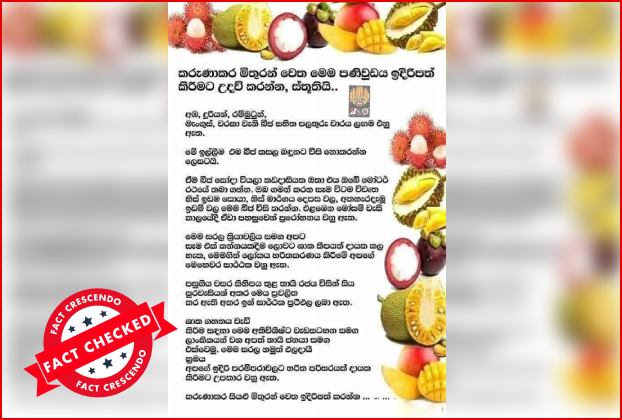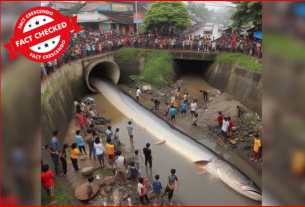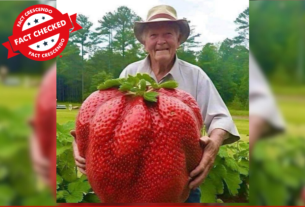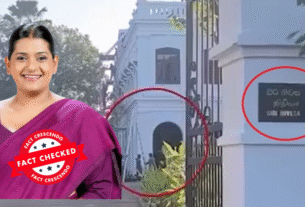Subscribe to our WhatsApp Channel
Protecting the environment is a noble task, but social media often spreads misleading posts about environmental conservation. These posts can exaggerate claims or share false information, leading to public confusion and hindering genuine conservation efforts. It’s crucial to critically evaluate online information and rely on reputable sources to support accurate, science-based conservation practices. Fact-checking organizations and responsible social media use are vital in combating this misinformation.
Social Media Posts
Social media posts claim that fruits like mango, rambutan, and durian are successfully grown in empty lands in Thailand by simply dropping seeds out of vehicle windows. The posts further suggest this is a sustainable practice promoted by the Thai government and should be adopted in Sri Lanka.
Fact-Check:
Lack of Mainstream Media Reports: A thorough review of mainstream media outlets in Thailand reveals no reports or articles about such a practice being implemented or promoted.
Input from Fact Crescendo Thailand: We contacted our colleagues at Fact Crescendo Thailand. They confirmed that no such practice exists in Thailand. They emphasized that the cultivation of these fruits is carried out by professional farmers who follow specific agricultural methods.
Expert Opinion: Freelance botanist Dilup Chandranimala, who has visited Thailand, also stated that he did not observe any such practice. According to him, this method is unlikely to be successful due to the low growth percentage of saplings when seeds are dispersed in this manner.
Official Stance of the Thai Government: Our investigation found no evidence that the Thai government promotes or endorses this practice.
How practical it is ?
Not all barren and empty lands are suitable for plant germination due to varying seed needs and environmental conditions. Poor soil nutrients, lack of water or shade, overcrowding, and insufficient sunlight can hinder growth. Additionally, seeds scattered by roadsides risk being mowed down. Instead, planting seeds in pots during the rainy season and caring for them can significantly increase their success rate to 60%. If growing a tall tree isn’t feasible at home, consider donating the saplings or seeds. However, if time is limited, scattering seeds in suitable locations, avoiding landfills, can still allow nature to take its course.More details can be read here
Also, there are concerns about whether non-native plants growing in a particular area can cause environmental problems. An explanation about it can be watched below.
Follow us and stay up to date with our latest fact checks.
Facebook | Twitter | Instagram | Google News | TikTok
Conclusion:
The claim that mango, rambutan, and durian can be successfully grown in Thailand by dropping seeds from vehicle windows and that this is a government-promoted sustainable practice is false. Professional agricultural methods are used for growing these fruits, and the Thai government does not support or promote such a simplistic approach to planting.
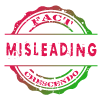
Title:Claims of Growing Fruits in Thailand by Dropping Seeds from Vehicles
Fact Check By: Fact Crescendo TeamResult: Misleading



